Simone de Beauvoir and
the Colonial Experience
Simone de Beauvoir and
the Colonial Experience
Freedom, Violence, and Identity
Nathalie Nya
LEXINGTON BOOKS
Lanham Boulder New York London
Published by Lexington Books
An imprint of The Rowman & Littlefield Publishing Group, Inc.
4501 Forbes Boulevard, Suite 200, Lanham, Maryland 20706
www.rowman.com
6 Tinworth Street, London SE11 5AL, United Kingdom
Copyright 2019 The Rowman & Littlefield Publishing Group, Inc.
All rights reserved . No part of this book may be reproduced in any form or by any electronic or mechanical means, including information storage and retrieval systems, without written permission from the publisher, except by a reviewer who may quote passages in a review.
British Library Cataloguing in Publication Information Available
Library of Congress Cataloging-in-Publication Data Available
ISBN 978-1-4985-5809-9 (cloth : alk. paper)
ISBN 978-1-4985-5810-5 (electronic)
 The paper used in this publication meets the minimum requirements of American National Standard for Information SciencesPermanence of Paper for Printed Library Materials, ANSI/NISO Z39.48-1992.
The paper used in this publication meets the minimum requirements of American National Standard for Information SciencesPermanence of Paper for Printed Library Materials, ANSI/NISO Z39.48-1992.
Printed in the United States of America
To my mother and father, Veronique and John Semple
Contents
This projects primary aim is to interpret the philosophy of Simone de Beauvoir and her intellectual trajectory through the perspective of French colonial history. I consider Beauvoir through this lens not only to critique her position as a colonizer woman or colon , but also as a means of situating her in one of Frances most vexing and fraught historical moments. Throughout this book, I refer to Beauvoir as a colonizer woman or colon , in the French, in order to emphasize the weight of French colonialism on Beauvoirs identity as a white French woman and not to negativize her role in the French imperialism. Indeed, I claim that while the French republic was systematizing colonialism, all of its white citizens were colons, whereas natives from Frances colonies were the colonized. Referring to Beauvoir as a colonizer emphasizes the subjective and interpersonal dialectic of colonialism, and the political dynamic between the colonized and the colonizer. In Freedom, Violence, and Identity , I present a gendered and female perspective of French colonialism, training particular focus on the period between 1946 and 1962, during which events incited French intellectuals such as Jean-Paul Sartre and Franz Fanon to rally against the political system; and, how their support fostered public opinions that brought about an end to French colonialism. However, although I seek to explicate French colonialism in terms of complex issues of gender and sex, I argue that it is through the work of Beauvoir as a colonizer woman that I am able to develop this feminist perspective of French colonialism in the philosophical tradition. This book adheres to a reading of Beauvoir as foremost an intellectual woman. To this end, I posit and maintain she reflected upon the legacy of French colonialism as an author and her nation-bound status as a colonizer serve an understanding of her relationship with women such as the alliance she created with Gisele Halimi and Djamila Boupacha.
As I contend in these pages, Beauvoirs colonial reflections can help us to better gauge how womenWhite, Asian, Arab, Caribbean, Latina, mixed race, and Blackdecipher the crimes and injustices of French colonialism. Closely reading Beauvoirs work fleshes out the reflections of women on colonial themes, such as gendered and racialized topics concerning freedom, violence, and identity , pointing to the possibility of women speaking as interlocutors of, and participants in, the dialectic of colonialism, the exchange between the colonized and the colonizer. As such, the story of French colonialism gains subjective and interpersonal freight, in turn, allowing women to serve as both active and passive participant-founders of colonialism.
The first stirrings of this project were in 2010 when I was a graduate student at Penn State University in search of a dissertation topic that would appeal to my interest in French philosophy, critical race philosophy, and feminism. Raised in an interracial family of White-American, Cameroonian, and French origins, I was studying these topics in the context of the education system in the United States and searching for parts of my own history. In the late 1990s to the early 2000s, I was introduced to philosophical analyses on French colonialism, not colonialism in general (as I believe that not all forms of European colonialism were the same; for example, British colonialism was not identical to French colonialism or to Spanish colonialism), through the works of Fanon, Sartre, Aim Csaire, Albert Camus, Albert Memmi, and Leopold Senghor. For better or worse, these French intellectuals gave a voice to the oppressedto people with a marginalized status. But as a student of third-wave feminism with an interest in the intersectionalites of race, class, sex, and gender, I was disappointed by the dearth of any genuine representation of womenAsian, Arab, Caribbean, Latina, Black, mixed race, or White, in the thoughts of these male colonial intellectuals. I was not only looking for what they thought about representations of women in the work of these male intellectuals, but also for female authors and/or philosophers who would articulate the struggle of the colonial consciousness in the first-person or from a personal narrative. So, I found Mayotte Capecia, Suzanne Csaire, Paulette Nardal, and, in the end, Simone de Beauvoir. Capecia, Csaire, and Nardal were all French Martinican female authors and Beauvoir, of course, was French. They all provided different female perspectives on the intellectual history of French colonialism.
In 2010, the work of Mayotte Capecia already interested me and, by then, I had written and published an article on Fanon and Mayotte Capecia in The Caribbean Journal of Philosophy . Then I turned to the work of Tracy Sharpley-Whiting, a feminist postcolonial scholar, to gain a deeper understanding of Suzanne Csaire and Paulette Nardal. I reviewed and studied their work because of their importance to the development of the Black female perspective within French colonial cultural studies of the twentieth century. After 2010, it was out of sheer luck that I was able to find even scant scholarship on Simone de Beauvoir and her thoughts on colonialism. Like Mayotte Capecias, the views of Beauvoir on colonialism immediately captured my attention. In The Ethics of Ambiguity , she talks about the serious mood upheld by colonial officers who tortured the population with excessive labor; in one of her memoirs, Force of Circumstance , she addresses the Algerian war and its effect on the humanity of the French. In my dissertation, I focus on the work of not only Beauvoir but also Sartre and Fanon, so as to gain a broader area of specialization in twentieth-century French philosophy. While I was in the process of completing and defending my dissertation in 2014, I decided I would like to write my first book on Simone de Beauvoir because, in the field of philosophy, very little work focuses on the French colonial experience and its effects on women written from the female perspective . At that point, in 2016, I became a postdoctoral fellow in the Philosophy Department at John Carroll University, and this book project began.
I am very much indebted to all those friends and colleagues who gave me feedback including Mariana Ortega, Michael Eng, Tom Hanaurt, Shannon Sullivan, and Laura Hengehold. I especially want to acknowledge my family and close friends who have been supportive of my journey as a philosopher including John, Veronique and Jordan Semple, K. Vera Brink, Darwin Bond-Graham, Ryan Beck, Joshua Kurdys, Illeana Sadin, and my dear friend P.

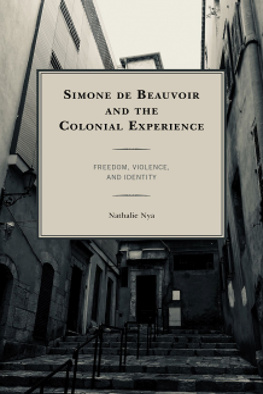

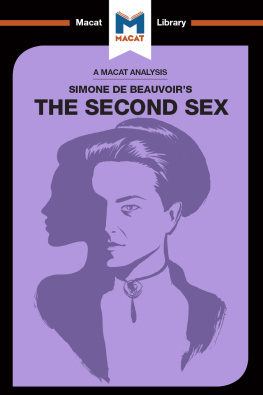
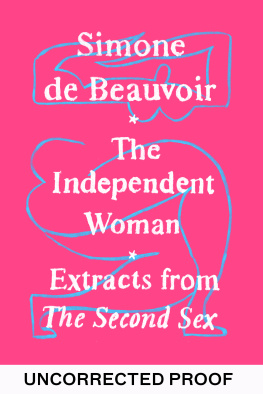
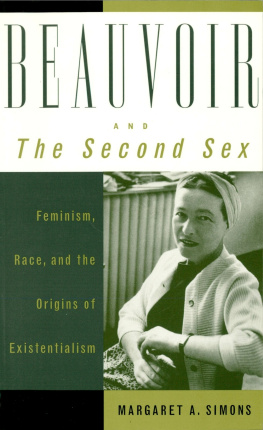


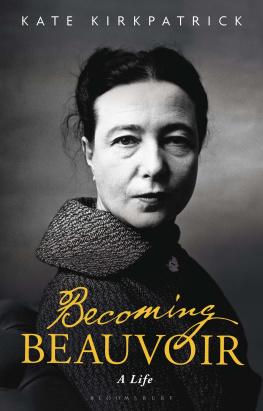
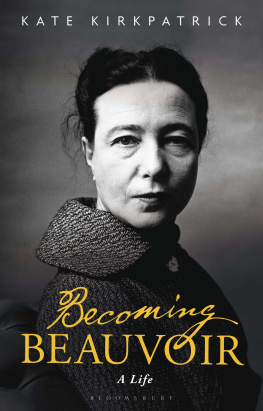
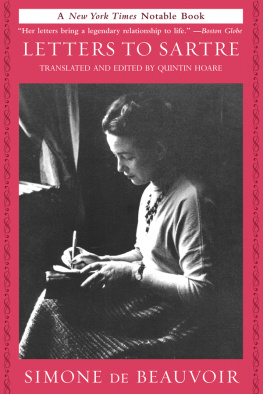
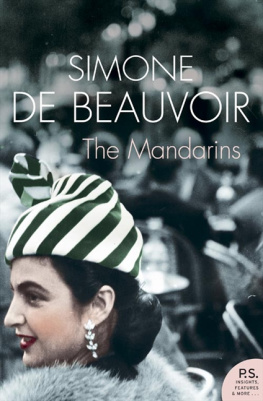

 The paper used in this publication meets the minimum requirements of American National Standard for Information SciencesPermanence of Paper for Printed Library Materials, ANSI/NISO Z39.48-1992.
The paper used in this publication meets the minimum requirements of American National Standard for Information SciencesPermanence of Paper for Printed Library Materials, ANSI/NISO Z39.48-1992.